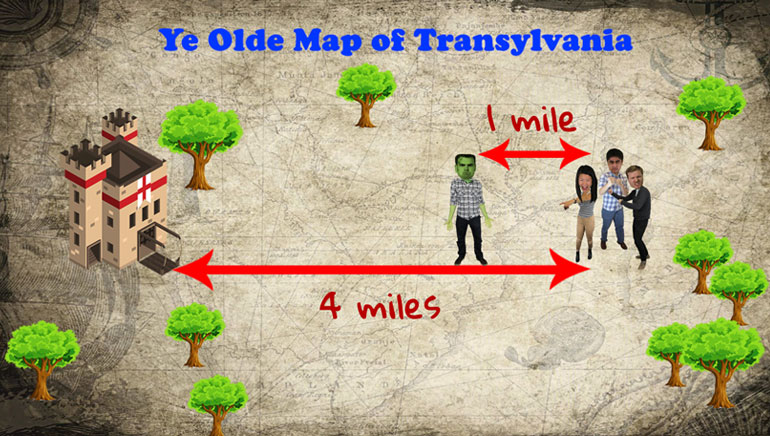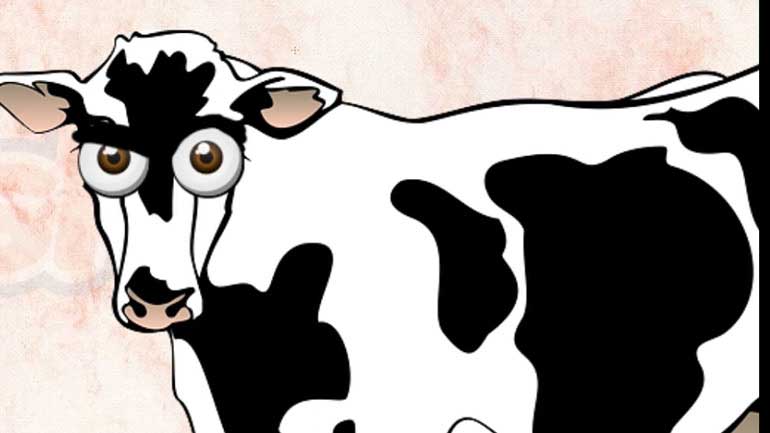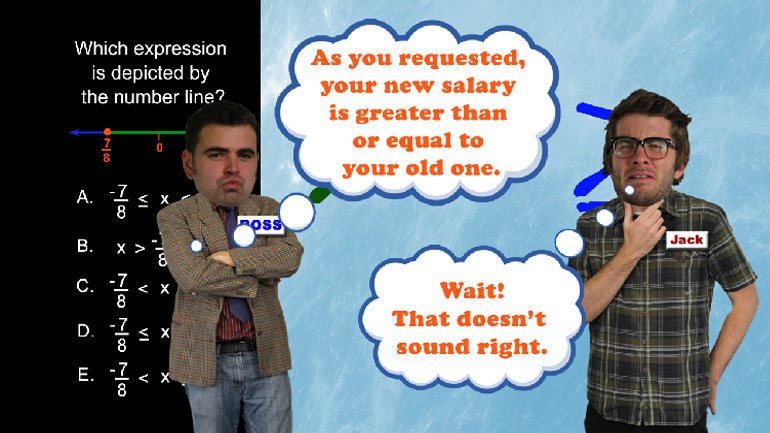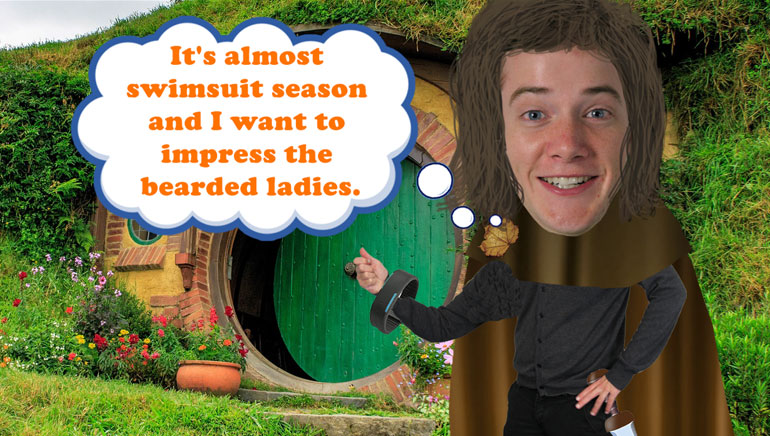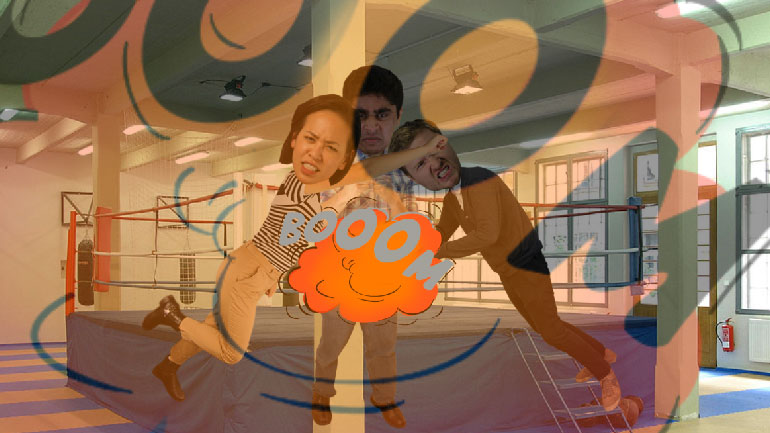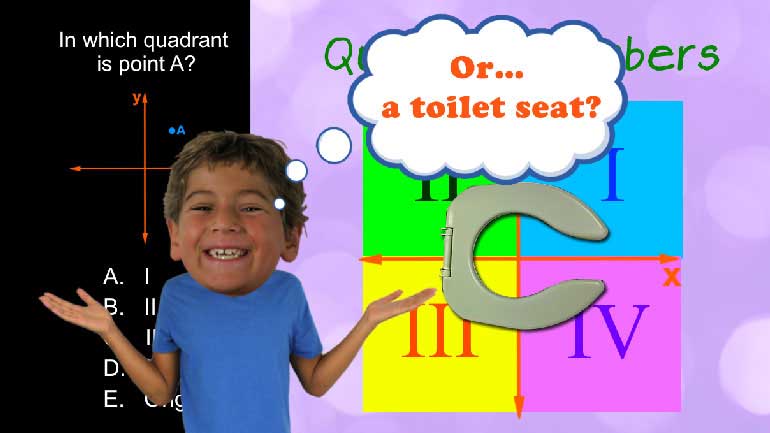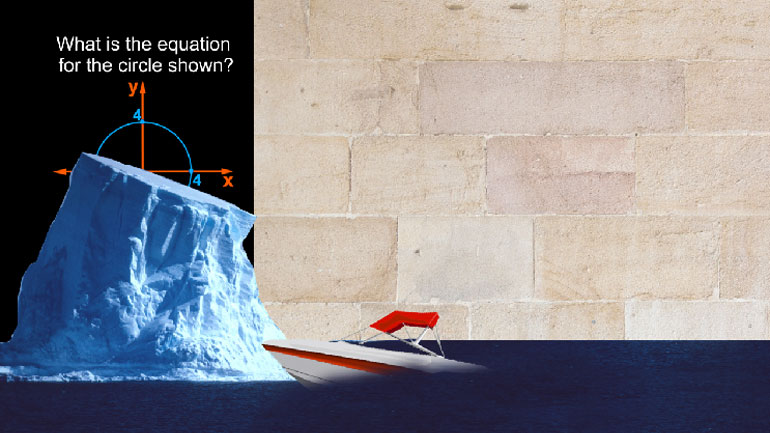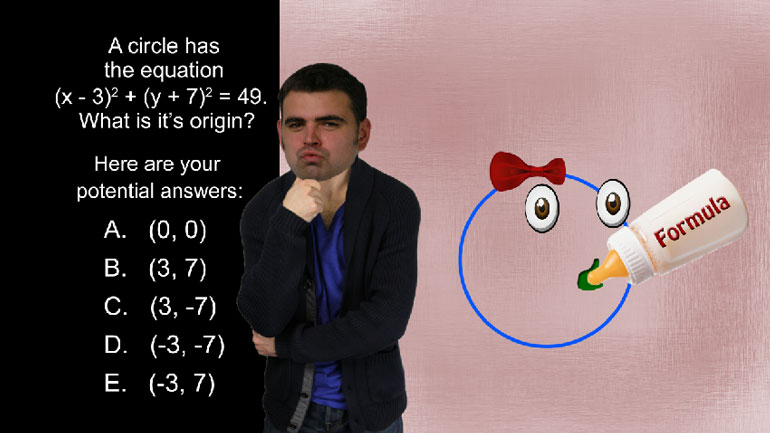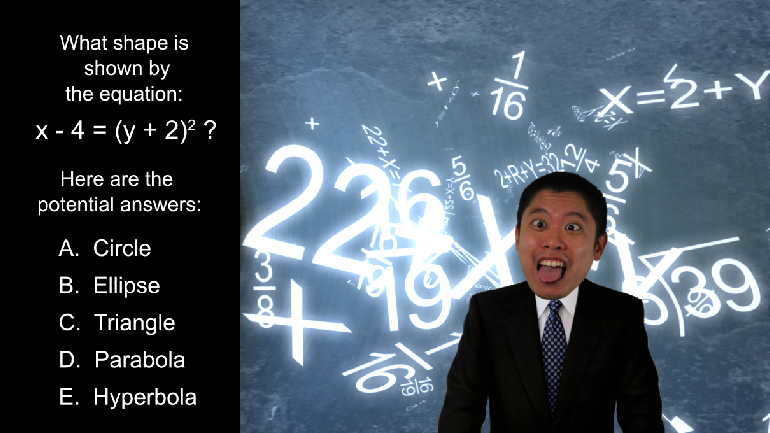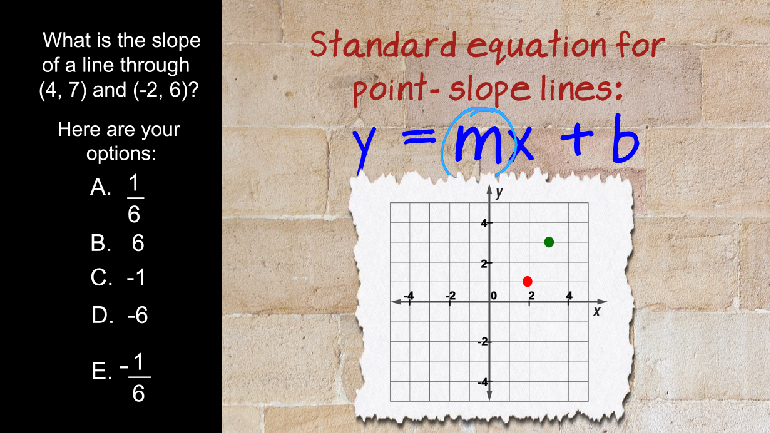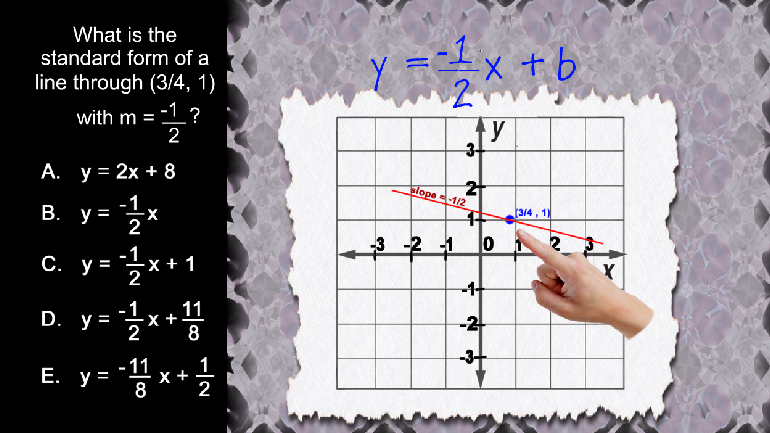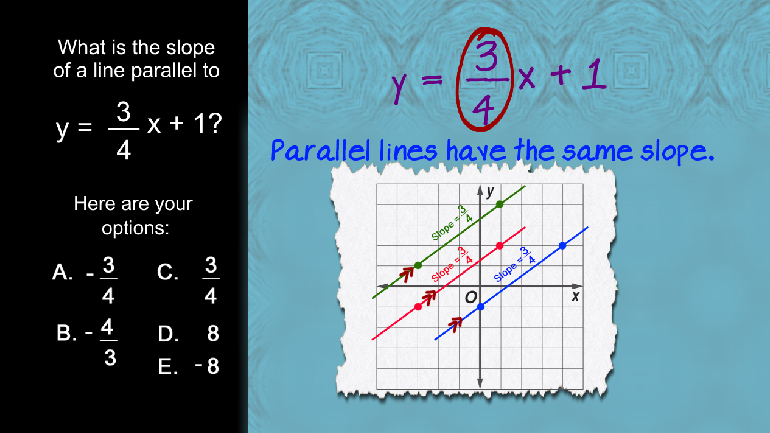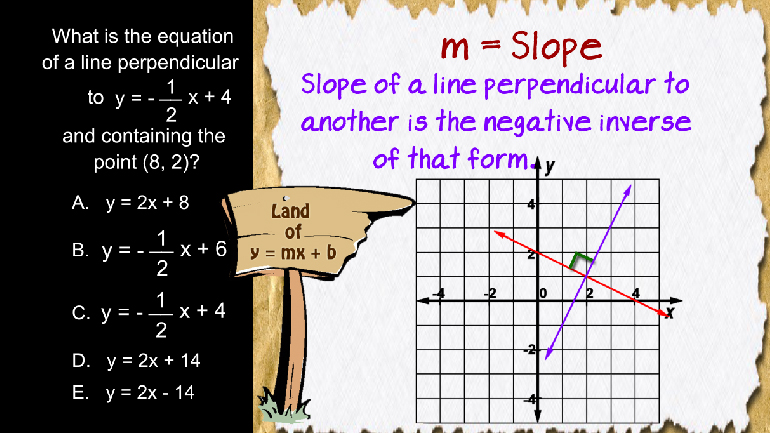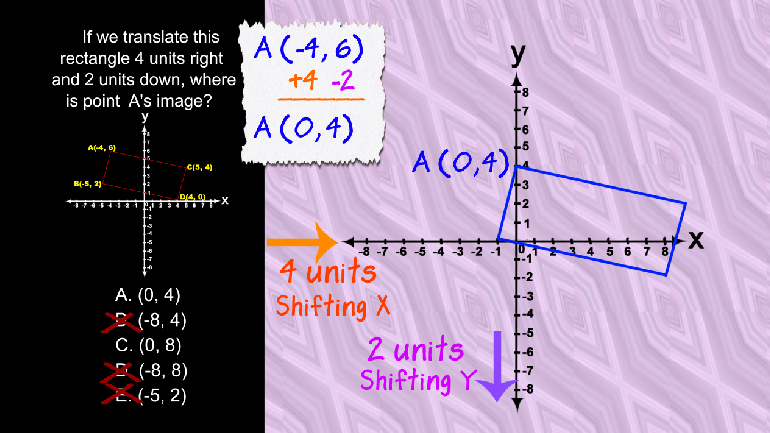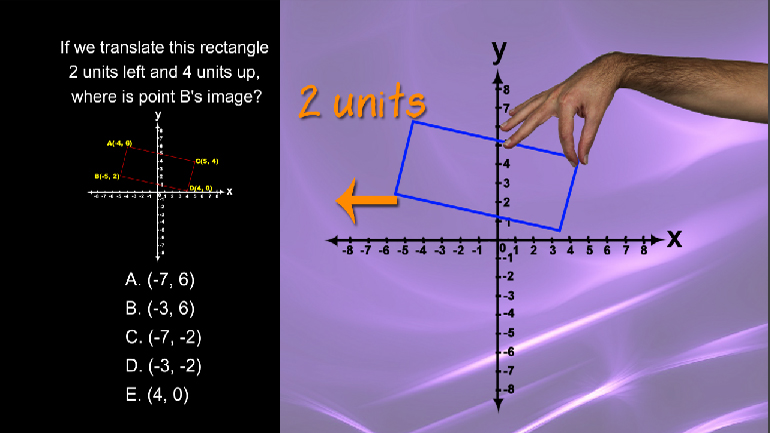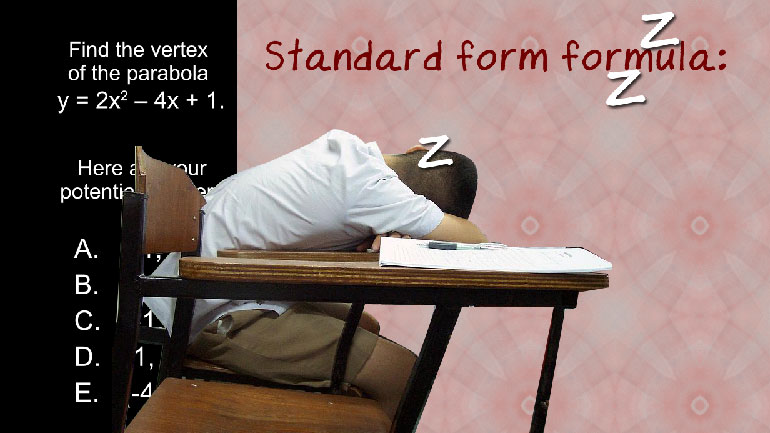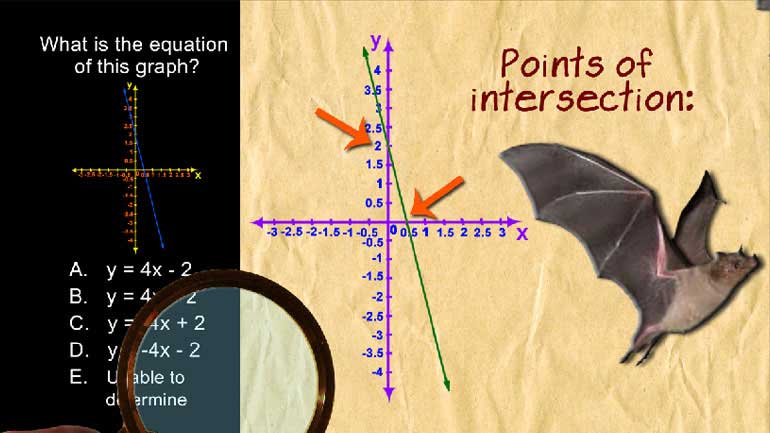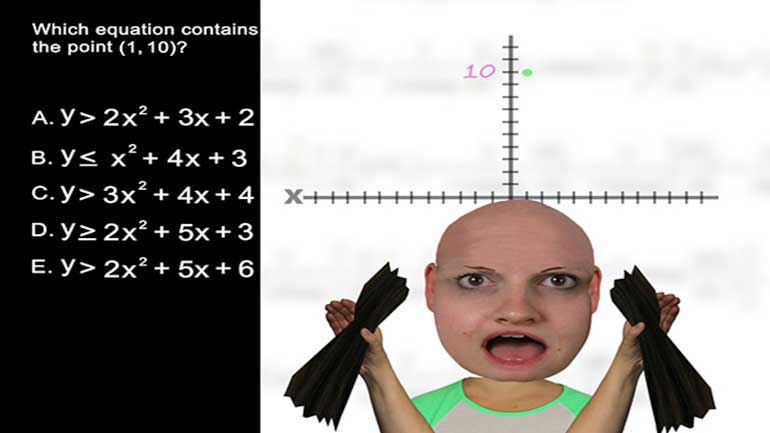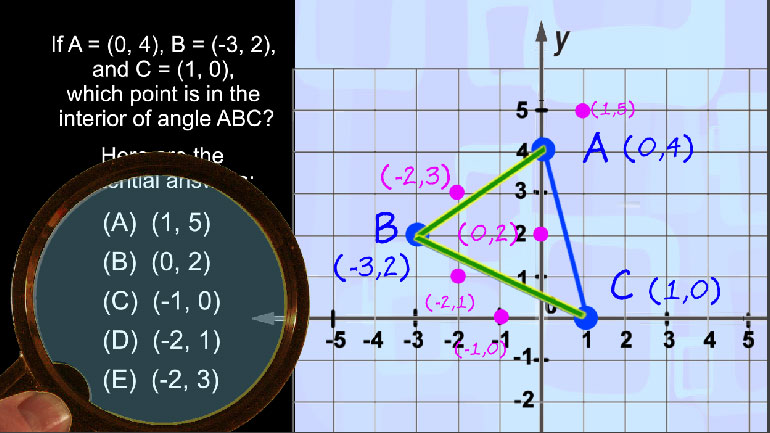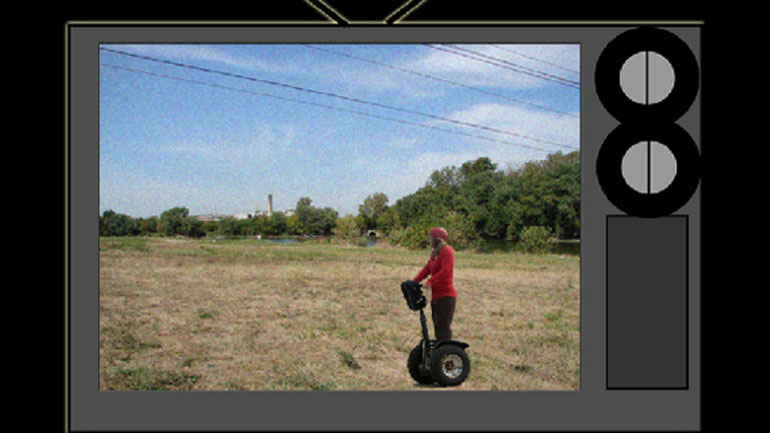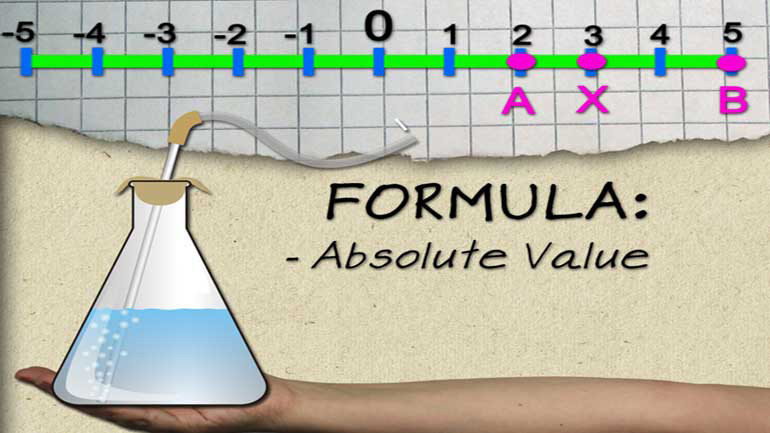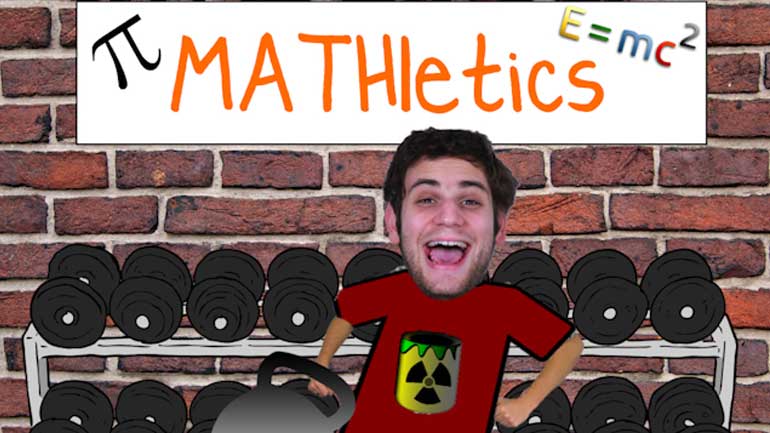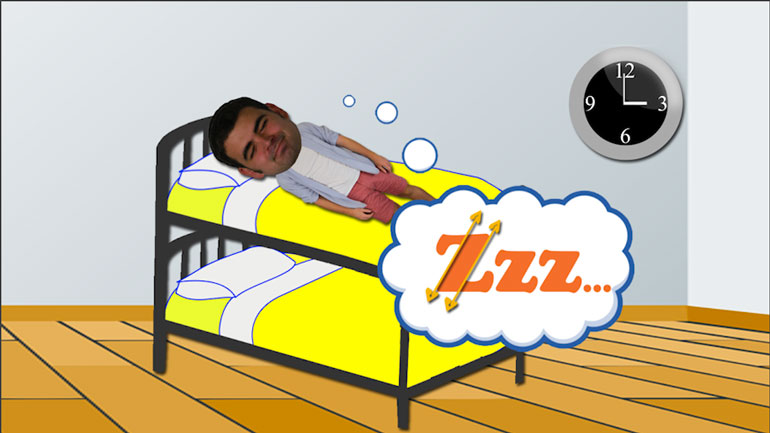ShmoopTube
Where Monty Python meets your 10th grade teacher.
Search Thousands of Shmoop Videos
Coordinate Geometry Videos 38 videos
In geometry, points are called collinear if they all lie on the same line. What, no bunk beds?
CAHSEE Math 5.4 Measurement and Geometry 342 Views
Share It!
Description:
Measurement and Geometry Drill 5 Problem 4. Which of the following best describes the transformation as shown in the graph below?
Transcript
- 00:03
Here’s an unshmoopy question you’ll find on an exam somewhere in life...
- 00:07
Which of the following best describes the transformation of triangle RST to triangle
- 00:12
R'S'T', as shown in the graph below?
- 00:16
And here are the potential answers...
- 00:23
OK, this is kind of a vocabulary test more than anything,
Full Transcript
- 00:26
and we have a few 5 dollar words we have to define.
- 00:29
Dilation is when the measurements of a shape expand.
- 00:29
Dilation is when the measurements of a shape expand.
- 00:34
Reflection is when a shape is reflected across an axis…
- 00:39
…and Rotation is when a shape is rotated on a graph.
- 00:44
Now let’s look at each of the options and see how they stack up…
- 00:47
It’s easy to see that dilation is… not the droid we’re looking for.
- 00:51
The triangle certainly does look reflected…
- 00:53
… but not across the y-axis.
- 00:55
That would look something like this…
- 00:59
But choice C supposes we reflect it across
- 01:01
the x-axis and then move it 6 units to the right…
- 01:04
…and that looks about right.
- 01:05
Just to cover all our bases, let’s take a gander at D.
- 01:08
This triangle COULD be rotated…
- 01:10
… except that if we’re rotating about the origin, R prime would be at 2,0 and not
- 01:15
4,0, as shown on the graph. So our answer is indeed C.
Related Videos
CAHSEE Math: Algebra and Functions Drill 5, Problem 3. Solve the equation.
The video will show you how to plot points in 3D using the axes of the 3D coordinate system. Make sure you're wearing your special glasses for this...
When graphing inequalities, you graph the line, shade the corresponding side, and plug in the point. The end!
One formula to rule them all, one formula to find them. One formula to bring them all, and in the darkness bind them. Or something like that. I...

